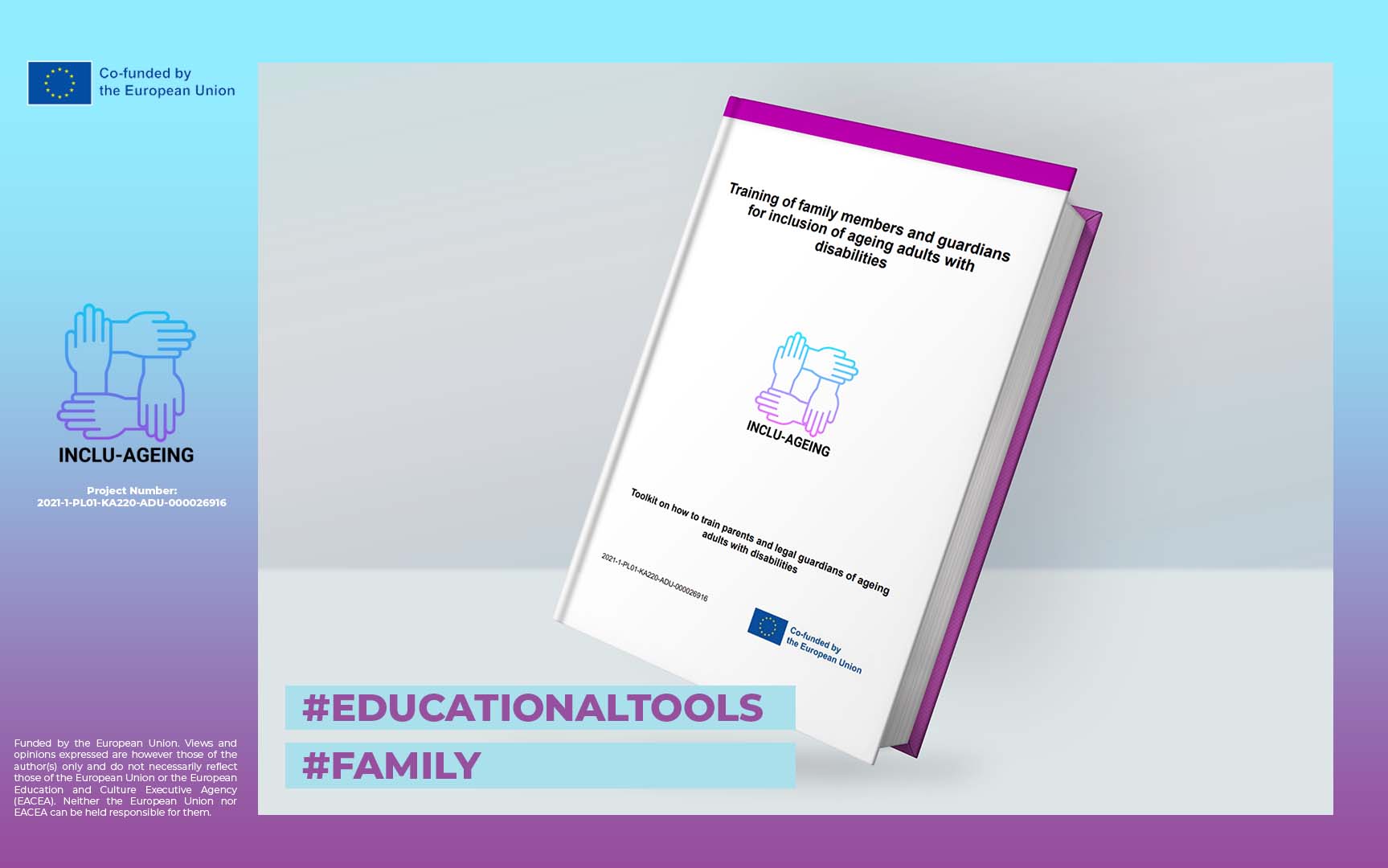CEIPES and the consortium of the KA2 Erasmus+ Inclu-ageing project (2021-1-PL01-KA220-ADU-000026916) developed the toolkit on how to train parents and legal guardians of ageing adults with disabilities, supporting them in the challenges and changes of the daily life.
The training program covers various topics, including cognitive and physical skills, social support networks and physical health. By improving the knowledge and skills of caregivers and trainers, individuals with disabilities can receive the support they require to thrive as they age.
They can be supported by the associations identified in the toolkit and by implementing activities addressed for who is ageing in general and, more specifically, for who is ageing and has an intellectual disability. Drama, theatre, Augmentative and Alternative Communication, posture correction…are just some of the topics addressed.
Various programs and services are available in every community to support individuals with disabilities and their caregivers, such as support groups, educational programs, vocational training and healthcare services. However, the availability of services and resources may differ significantly from one community to another. That’s why this toolkit aims to provide efficient tools to overcome the barriers.
Specifically, CEIPES investigated the role of social support networks. Social inclusion is one of the primary challenges faced by older adults with disabilities. Despite efforts to promote social inclusion, it remains an unresolved policy issue. By improving the understanding of the challenges and changes that come with aging, caregivers and trainers can work to promote social participation and inclusion for ageing adults with disabilities.
It is crucial to recognize that the training program covers various types of disabilities, acknowledging the unique needs and challenges of individuals with different disabilities. By providing comprehensive support and training, families, caregivers and trainers can ensure that individuals with disabilities receive the care and support they need to live fulfilling and meaningful lives.
CEIPES and the rest of the partnership also identified associations experts in the field to evaluate the deliverable and the tools provided. The general feedback was very positive and they were enthusiastic of the project innovation and objectives.
You can access the toolkit and its brochure at this link.
Don’t forget to stay tuned to the project progress following its Facebook page and visiting its website!
